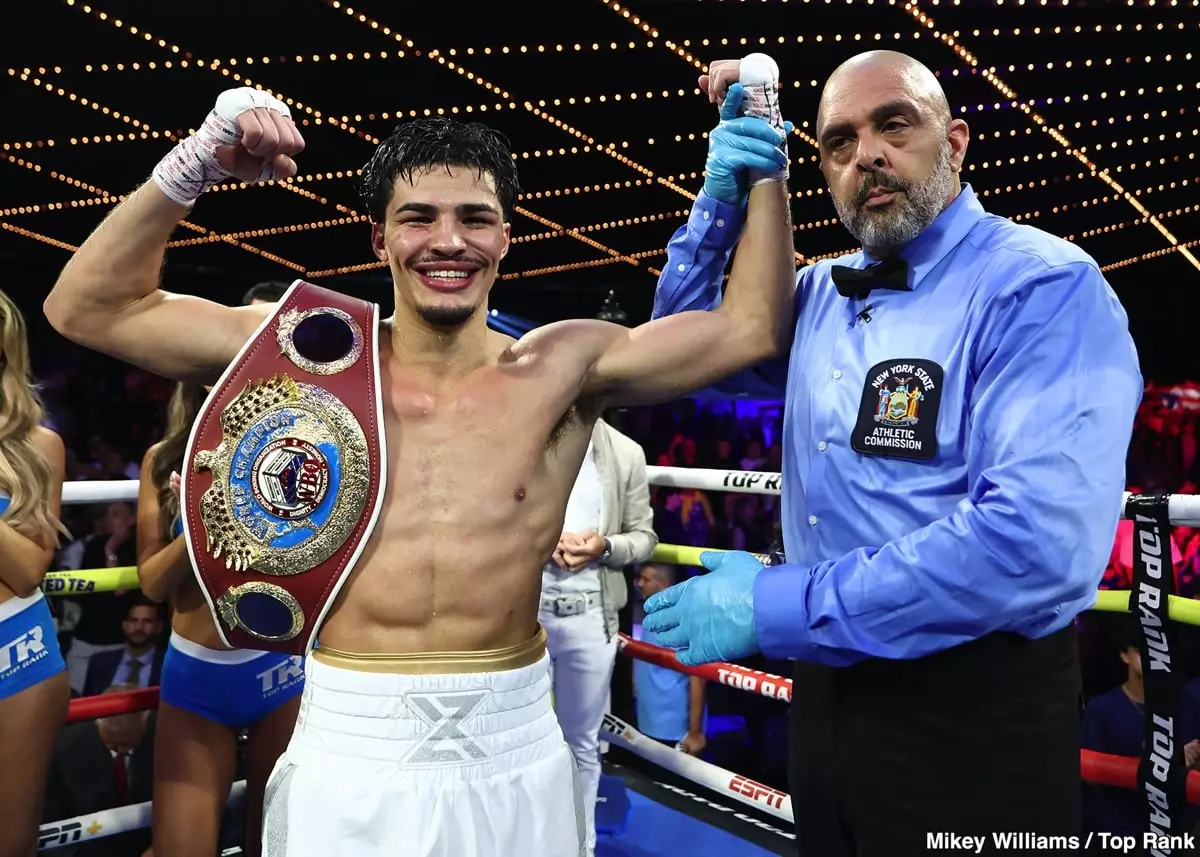In the world of professional boxing, perceptions of achievement often overshadow raw potential. Xander Zayas, a 22-year-old prodigy, recently captured the WBO junior middleweight title in a decisive manner, emphasizing the importance of opportunity and well-timed career moves. Conversely, Vergil Ortiz Jr., a seasoned fighter of nine years, dismisses Zayas’s accomplishments, claiming that age and experience define true success. However, this perspective fundamentally undervalues the significance of strategic mentorship and the opportunities that elevate fighters to championship status at a young age. Zayas’s victory exemplifies how carefully curated pathways—sometimes called “favorable circumstances”— can fast-track talented athletes into the limelight.
While Ortiz’s remarks veer into dismissiveness, they also highlight a deeper issue: the perception that achievement is solely measured by longevity and title defenses. The reality is that in modern boxing, a fighter’s career trajectory is heavily influenced by management and promotional strategies. Zayas’s rise underscores that determination, combined with the right guidance, can challenge conventional expectations, proving that youthful vigor, when paired with tactical career moves, can be just as formidable as years of experience.
The Power Dynamics of Promotion and Strategy
Ortiz’s comments reveal an undercurrent of frustration rooted in his own career stagnation. Despite being a talented fighter, Ortiz has yet to claim a full world title, and his promoters have arguably not navigated his path with the same finesse as Top Rank has with Zayas. This disparity demonstrates that success isn’t purely about raw talent but also about the machinery behind a fighter—the rights, alliances, and strategic decisions that shape their opportunities.
Zayas’s ascent was facilitated by a perfect storm of promotional support and sanctioning body maneuvering—akin to a chess game where every move is calculated to position him for the belt. In stark contrast, Ortiz’s career has lacked this streamlined guidance, which may explain why he perceives Zayas’s quick rise as undeserved or “gifted.” Yet, the narrative of privilege in boxing doesn’t diminish Zayas’s talent; instead, it underscores the importance of strategic career planning. Victory from a carefully orchestrated journey often appears more impressive than one solely based on perseverance through adversity.
The Reality Behind the Status Quo
In a sport obsessed with narratives of grit and struggle, the truth often lies in the intricacies of career management. Zayas’s clean record and recent title suggest a model of success that challenges old stereotypes. Meanwhile, Ortiz’s critique reflects a healthy, if somewhat defensive, perspective on career achievement. There’s an undeniable honesty in Ortiz’s assertion that “you got a gift,” pointing to the widespread belief that some fighters are handed opportunities rather than earned them.
However, this mindset risks undervaluing the strategic elements that propel some fighters forward faster—a fact articulated through Zayas’s rise. The notion that fighters like Zayas are “fortunate” overlooks the reality that smart management and tactical matchmaking are critical instruments of victory in boxing’s complex ecosystem. Success is increasingly a product of these behind-the-scenes chess moves rather than just physical prowess alone.
The dialogue between these fighters also offers insight into the evolving nature of sportsmanship and respect in boxing. While trash talk and social media jabs stir interest, they also cast light on differing philosophies of achievement. Ultimately, Zayas’s elevation at such a young age signifies a new chapter—one where persistence, strategic positioning, and support can catapult a fighter to the top faster than ever before.

